

This article mainly introduces how to rewrite the session storage mechanism in PHP. It has certain reference value. Now I share it with you. Friends in need can refer to it
Session data area
By default, it is stored in the form of a file and in the temporary directory of the server operating system!
When there are too many session data areas, storage in the form of files will slow down the operation. Disk reading and writing (IO, input/output) overhead is very high.
In actual projects, other methods will be used to store session data faster. Typical methods: database, memory.
Take database storage as an example to explain: session data is stored in the database!
Just rewrite the operations directly related to the session data area:
There are only two basic ones: read and write!
1: Define 2 functions that can complete reading and writing.
Two: Inform the session mechanism that when reading and writing are required, use user-defined reading and writing functions to complete.
Related topic recommendations:php session (including pictures, videos, cases)
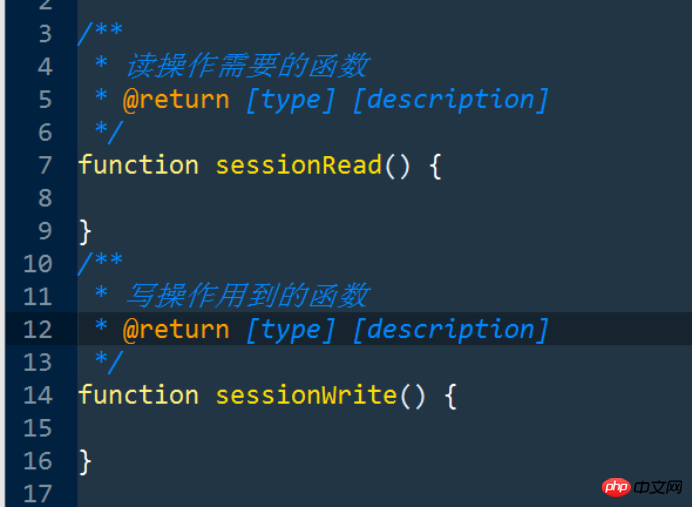
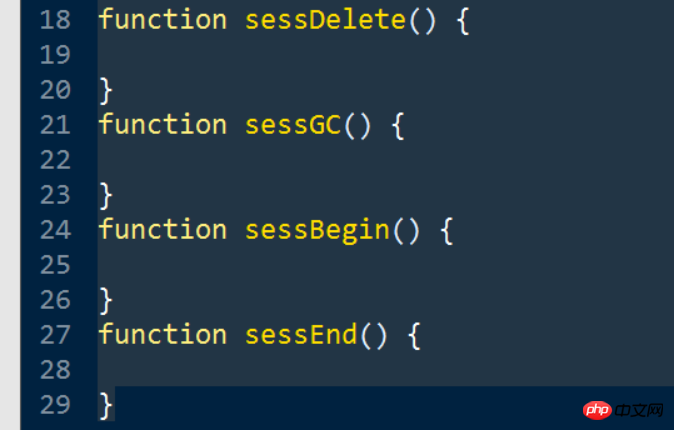
Informsession Mechanism, When needs to read and write, use user-defined read and write functions to complete
Session_set_save_handler( 开始函数,结束函数,读函数,写函数,删除函数,GC函数 );
Used to set user-defined functions as session storage-related functions.

The above syntax is only a setting notification, not a call to the above 6 functions. These six functions will only be used when the session mechanism runs to a certain point in time. transfer! For example, when opening a session, you only need to call sessRead()
Open the session mechanism
Operation$_SESSION
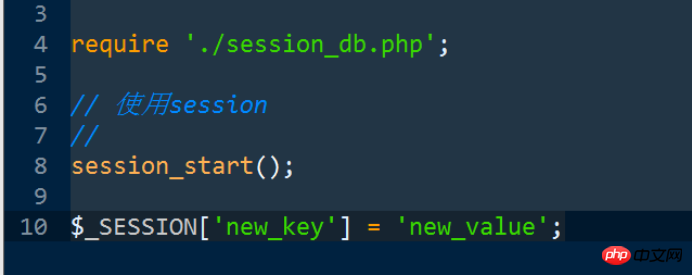
In this session, each record is a session data area, which is equivalent to an original session file.
Table structure:

Who calls , who passed on the information!
When PHP's session mechanism calls this function, the current session-ID will be passed to the function as a parameter:
Therefore, a formal parameter needs to be specified to accept the passed session-ID. Parameters:
Need to return the read session data string. It is the content of the sess_content field. If it is not read, just return an empty string, indicating that there is no session data.

When the PHPsession mechanism calls this function to perform a write operation, The current session-ID and the content to be written (serialized) will be passed to the function!
Requires 2 formal parameters to receive:

Test:


When destroying the session.
Executed the PHP function:
Session_destroy();
You can destroy the session, delete the corresponding session data area, and close the session mechanism at the same time!

Due to the need to delete the session data area, it is necessary to add a method for deletion:
PHP's session mechanism will pass the current session when calling sessDelete -ID as parameter:
Need to define formal parameters to receive:
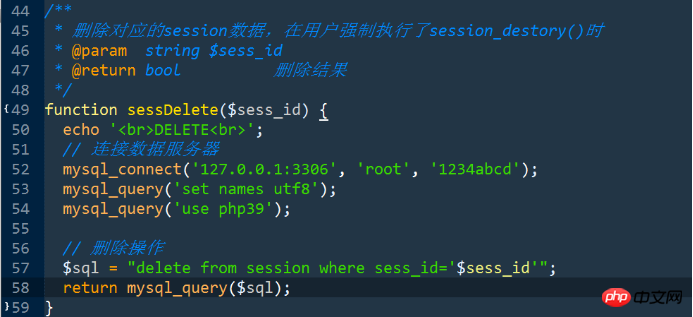
##Garbage collection operation: sessGC()
Garbage: Outdated session data area on the server. ,How to determine garbage? If a session data area has not been used for more than a certain period of time (the last write operation), it is considered garbage data. The time critical point: default 1440s. Can be configured: 
Based on the last writing time, you can determine whether it is garbage
You need to add a field to record the last writing time.


When writing, update this field:
sessWrite();

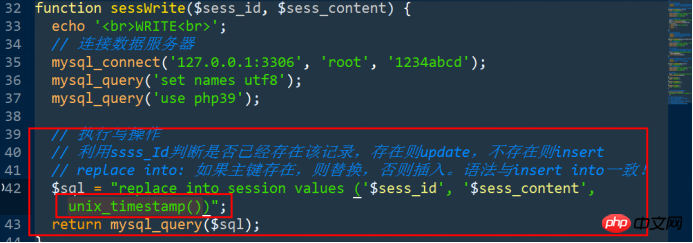
Judgment condition: expired
Last_write < Current time-1440
During the session_start() process, during the process of opening the session mechanism: there is a probability of performing garbage collection operations. Once executed, all expired garbage data areas will be deleted.
The default probability is 1/1000.
The probability can be set:
Possibility:

Base (divisor):

Adjustment probability test:
It is recommended to adjust during the script cycle, use the function ini_set(), and complete it before opening the session mechanism:

Implementation sessGC()
PHP’s session mechanism passes the maximum validity period as a parameter!
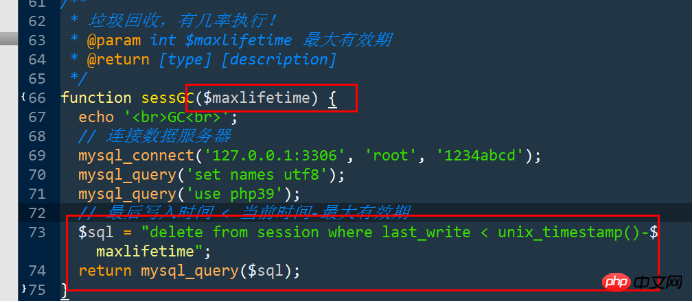
Initialization work
can be guaranteed to be executed first. Complete the initial code in sessBegin:
For example, initialize the database connection:

Final work
Return true;

Session_set_save_handler() precedes session_start( ) is called.
Do not automatically open the session! php.ini: session.auto_start = 0
Used by PHP Storage mechanism:

#Finally, it is recommended to change the above configuration to user: which means user-defined!
The above is the entire content of this article. I hope it will be helpful to everyone's study. For more related content, please pay attention to the PHP Chinese website!
Related recommendations:
How to traverse folders through php to obtain the image directory name and file name
How to solve php Array reference problem left after foreach loop
The above is the detailed content of How to rewrite session storage mechanism in php. For more information, please follow other related articles on the PHP Chinese website!